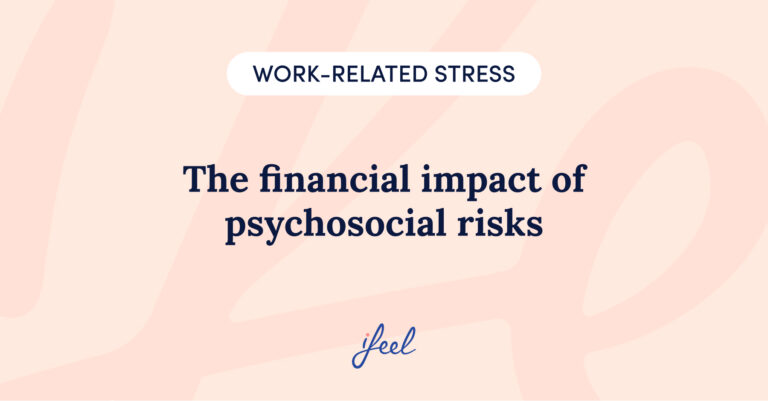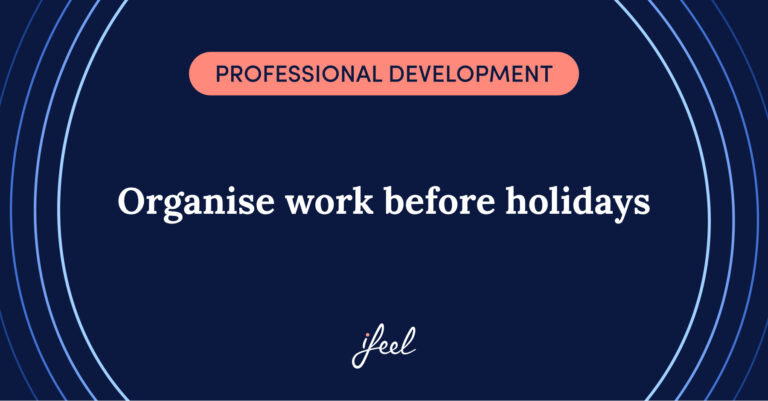As its name suggests, self-concept is literally the concept we have of ourselves. That is, how we define ourselves, what characteristics we consider define us, and what idea we have of what we are or who we are. Self-concept has to do, therefore, with identity, that is, who I think I am, and what “things” I think I am, although it is not exactly the same thing since identity includes other dimensions of the person.
Self-concept and self-esteem
Both are part of our identity and are closely linked to each other. In very colloquial terms, we could say that self-esteem is the positive or negative evaluation we make of the characteristics included in the self-concept. In this sense, self-esteem results from our judgment about what we like and dislike about ourselves in each of the areas that define us, such as our professional life.
However, in reality, self-esteem is something deeper than that. It is more psychologically complex than what is normally reduced in street language to “to like or not to like oneself”.
What we think we deserve
In fact, strictly speaking, self-esteem is the perception that a person has of deserving to be loved or not. When we say “loved,” it is not to be understood only in a “romantic” sense, but with a broader meaning: the perception that a person has of deserving to be valued, validated, recognized, cared for, integrated, accepted, etc.
For example, if I have a positive and high self-concept and self-esteem, I will believe that I deserve recognition or an improvement in my working conditions and I will feel legitimized and empowered to request it. Otherwise, I will tend to be more conformist or will not understand why my work is so positively valued.
Another way to explain the same would be the expectation that this perception of worthiness has to do with the expectation we have that others will love us: if I believe that I am valuable, that is, if my self-esteem is reasonably high, I will believe that others will consider me in the same way and that allows me to go through life with security, confidence, and positivity.

Imagine how important this is when we go for a job interview, or when we conduct our performance review with our manager. In those moments we rely on our professional skills (usually known as hard skills and soft skills) and we also use our social skills to successfully execute those job challenges.
Aspects that are not so distinct
Although we are separating them here in order to analyze them more clearly, in the reality of our internal world, self-esteem and self-concept co-exist simultaneously. By separating them, we can observe areas of each of these two self-referents that are very differentiated.
For example, if I say “I work as a Project Manager in a multinational company”, I am clearly talking about a characteristic of my self-concept, without valuing it: having that position is an objective fact, which defines me, regardless of whether I like it more or less. However, if I say “I am a very reliable professional” I am actually talking about both self-concept and self-esteem, since being a very reliable professional is something that I consider defines me (self-concept) but includes a valuation, a judgment, in this case a positive one (self-esteem).
As you may have guessed, those people suffering from the so-called impostor syndrome are not at their best in terms of professional self-esteem and probably need some kind of help, for example with a psychologist who is an expert in occupational well-being. This can help them to have a more rigorous and balanced view of themselves as professionals, or put them on the road to some kind of training in their competencies that will free them from that unpleasant feeling of imposture at work.
On the other hand, paradoxes can arise as well. I can say, “I don’t perform my job particularly well, but that’s okay, it doesn’t make me feel bad, it doesn’t make me suffer, and I don’t create serious problems for others”. In other words, a negative assessment of a characteristic that defines us does not necessarily imply a poor self-esteem regarding that subject or a huge challenge regarding our personal development.
Rich self-concept, poor self-concept
We often speak of people with a great “inner world”, multifaceted or complex. In extreme cases, we would speak of people with a poor self-concept, either because they have little capacity for introspection and reflection on themselves, because of their stiffness, because of a low cultural level, or because they are what in the language of the street is called “simple” or “flat”, all of which are highly relative issues.
Imagine making a list of those characteristics that define you, that is, that indicate something of what you are or who you are. If the list has, to say something, 4 items instead of 40, it seems that this self-concept is not very broad. On the other hand, if the list has 40 characteristics but they only speak of one or two aspects (for example, physical appearance, or profession) it does not seem to be a very rich self-concept either.
In both cases, perhaps it would be interesting to look at ourselves a little more closely, to be more observant, to be able to detect more characteristics, to recognize the complex person we are and not reduce it to four things or to the four things about ourselves that we have been taught that we are, that we have learned that we are and that we repeat over and over again as if they were the only truth about what defines us.
It is also convenient to do so because if I have a poor but well-valued self-concept, nothing may happen, but if few things define me and I give them little value, or others begin to give them little value. I will surely sink because I have put all my self-esteem eggs in the one basket and the basket is broken.
For example: if I only define myself in professional terms, that can work for me as long as I work and as long as I have a good view of myself as an employee or as others do. However, the day I retire, I will “disappear”, I will cease to be someone of value, which can be devastating. The same thing happens if I only consider myself in physical terms: what if that is not valued well, what and for some reason, I start to lose my physical attractiveness and desirable person? That “all of me” will be wrong, I will disappear, but for a distortedly simplistic view of the person I am.
The constructive view of the other
Is our self-concept shaped by what others think of us? Of course, we do. Our identity -which includes both self-concept and self-esteem- is based on what those around us tell us we are from childhood onwards. You are a man, you are Spanish, you are handsome, you are bad, you are a good friend, you are a hard worker, a team player, you are not good at sports, you are my son, you are the oldest, you will be important, you will go to university, etc.
This “building” is enriched with the rest of life experiences and with how each one of us prepares for all these influences: we all feed on what comes from outside, but we elaborate it with our own particular tools. We have a very important voice in our self-concept, of course. That is to say, our self-concept is the fruit of constant interaction of external and internal material.

In short, to reach a conclusion about who we are,, even in the workplace, we are very much influenced by what our families, friends, teachers, partners, and co-workers tell us we are. Sometimes there can be a great consensus about this over time or between different people in our environment.
Always the same… but not so much
Other times the different people in our lives have different ideas of who we are or what we are like and pass them on to us. It is normal and desirable for such controversies to exist – it would not be healthy if everyone told us we were horrible and we had no alternative outside opinion, but nor would it be if everyone told us we were wonderful.
The fact is that we are never exactly “the same person” with everyone, we have different roles in our lives and we also modify our behavior and, hence, our self-concept.
It is important to keep in mind that there is part of the self-concept – or identity, if you prefer – that changes over time while another part remains stable throughout life. If we apply this to our professional identity, we can say that someone who studied law will always be someone who studied law and nothing will change that, while the person who was a teacher for thirty years is now no longer a teacher, but a retired person, for example. Some aspects change while others remain totally or relatively stable over time.
We care for emotional well-being in organizations
At ifeel we know that companies are successful when they work with people who believe in themselves, who are comfortable working together and who feel the company’s values as their own.
Our team of psychologists, experts in well-being at work, has created an emotional well-being program for companies that can guide HR managers in this task and help the rest of the company’s members.
With this service, HR managers can receive personalized, data-driven advice on improving the psychological well-being of the teams in their charge. If you are part of the HR department in your organization, we recommend that you try our program now and see how it could help you.
This program offers all employees a complete mental health care service that they can access in different ways depending on their needs. Those who wish to have access to an online therapy service with one of our psychologists specialized in cases like theirs or interact with one of our professionals to receive emotional support in a more specific circumstance that worries them.
Of course, in our Resources section, you can find different materials that will help you with many of your day-to-day functions as part of the HR department. For example, podcasts, HR guides on various topics (e.g., employee experience or how to design a good HR strategy), or Interviews with leading HR executives. In addition, we have a Psychosocial Risk Factors Template, which you can use to comply with the requirements of the Labor Inspectorate.
We hope you found this post on self-concept interesting. If you would like more information about our emotional well-being program for companies, simply request it, and we will contact your team as soon as possible.











